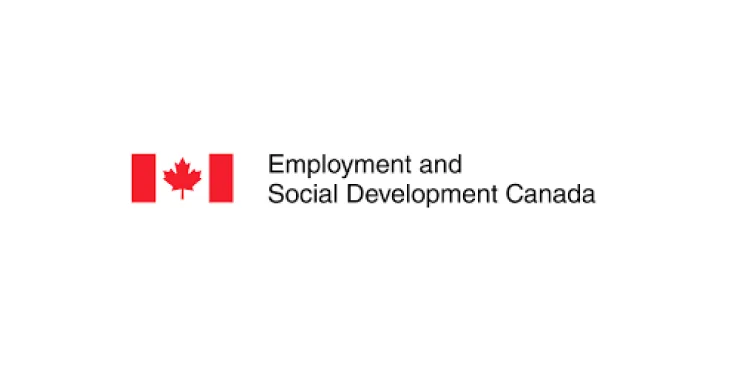
Can my employer deduct money from my wages to pay for an item I broke?
You’re entitled to get paid for the work you do. If you think your pay is wrong or you haven’t been paid what you’re owed, there are steps you can take. Learn your rights and how to work out the problem if your employer hasn’t paid you.
What you should know
A key factor affecting your rights around getting paid is whether you’re covered by the Employment Standards Act. This is the main law protecting workers in BC. It applies to “employees” — which covers most but not all workers in the province.
If you’re not sure whether employment standards law applies to you, see our information on who’s covered.
A second factor that comes into play is your employment contract. It will typically set out how and when you’ll be paid, and on what terms.
(Note there’s always an employment contract between a worker and an employer, even if nothing is in writing.)
Your contract rights may be greater than the protections in employment standards law. But — if employment standards law applies to you — your contract rights to getting paid cannot be less than the minimum standards the law sets. If they are, you’re still entitled to the minimum protections of the law.
“My employer was often late sending my pay cheque. Payday would come and go and it would be weeks before I received anything. I raised the issue with my boss. I explained how the late cheques were affecting my ability to make rent and other expenses. She went to bat for me to get my wages directly deposited to my bank account each payday."
– Lewis, Burnaby, BC

If you’re covered by the Employment Standards Act, your employer must pay you at least semi-monthly (twice per month). All you earn in a pay period (including overtime and statutory holiday pay) must be paid within eight days of the end of the pay period.
(This doesn’t include annual vacation pay or overtime wages credited to your time bank.)
Your employer must pay your wages in Canadian currency. Wages can be paid:
in cash,
by cheque, bank draft or money order, or
by direct deposit to your bank account.
Payment by direct deposit must be authorized by you in writing or by a collective agreement if you’re part of a union. If you’re a farm worker, your employer must pay your wages directly to your bank account.
Don't delay in raising the issue
If you don’t think your employer has paid you all of what they owe you, let them know right away. The longer you wait, the more difficult it may be to collect your wages.
Your employer can't deduct any amount from your wages except as permitted under the law.
Some examples of deductions that are permitted include:
income tax
employment insurance premiums
Canada Pension Plan contributions
union dues
amounts required as a result of a garnishing order
In addition, you can request that a certain amount of each pay cheque go to a third party. This is called an assignment of wages. For example, you may ask your employer to assign part of your wages to an insurance company for medical coverage or to an RRSP for retirement savings. Assignments of wages must be in writing.
Check your wage statement
If you want to see what your employer is deducting from your wages, have a look at your wage statement. It’ll tell you the amount and reason for each deduction.
Your employer can not deduct money from your wages to pay a business expense. This includes expenses arising from:
theft
breakage
damage to the employer’s property
failure by a customer to pay (for example, “dine and dash”)
If an employer makes an employee pay for a business expense, the Employment Standards Branch can recover that money as unpaid wages. The Branch can also fine the employer.
If your employer overpays you, they can’t deduct that overpayment from future wages — unless they have your written consent to do so. The same applies if your employer gives you an advance on your wages. They can’t deduct that advance from your future wages, unless they have your written consent.
You can challenge a deduction
If your employer has deducted money from your wages inappropriately, you can challenge them. See the steps under “Work out the problem,” below.
If you’re covered by the Employment Standards Act, your employer must give you a written wage statement on your payday. The wage statement covers a single pay period, and must include:
your employer’s name and address
the hours you worked
your regular wage rate
your overtime rate
the overtime hours you worked
any money, payment or allowance you’re entitled to (for example, statutory holiday pay)
the amount and reason for each deduction
how your wages were calculated (if you aren’t paid hourly or by salary)
your gross and net wages
any amounts withdrawn from your time bank, and how much time remains
The document must be separate from your pay cheque, so you can keep it if you want to. Your employer doesn’t need to give you a wage statement if nothing has changed since the last pay period.
Wage statements can be provided electronically, so long as your employer provides:
confidential access to the electronic statement at your workplace, and
a means of making a paper copy.
If you are fired or quit, your employer must pay all wages owed to you. This includes annual vacation pay, statutory holiday pay, and overtime.
If you’re covered by the Employment Standards Act, there are strict time limits. If you’re fired, your employer must pay your outstanding wages within 48 hours of your last day of work. If you quit, they must pay these amounts within six days of your last day of work.
Work out the problem
If you haven’t been paid wages you’re owed, first raise the issue with your employer. Show them any documentation that supports your position (for example, an unpaid invoice).
Tips for having a conversation with your employer
Approaching your boss can be stressful. We offer tips to help you talk with your employer.
If discussing the issue with your employer doesn’t work, consider writing them a letter. Explain your concerns in detail. For example, you could say something like:
“Under the BC Employment Standards Act, I’m entitled to be paid my wages within eight days of the end of each pay period. It’s been two weeks, and I haven’t received my wages for the last pay period. The delay is affecting my ability to make my rent payment for this month. [Modify to fit your situation.] I’d like to explore solutions to this issue with you as soon as possible.”
We provide tips for writing a letter to your employer.
Keep a copy of the letter for your files. Having a written record will be useful if you need to take additional steps.
If you aren’t able to resolve things directly with your employer, you can make a formal complaint. Workers covered by the Employment Standards Act (see who’s covered) can make a complaint to the Employment Standards Branch. This government office administers the Act and helps workers and employers resolve problems. For what’s involved, see our guidance on making an employment standards complaint.
Common questions
Maybe. Some workers aren’t eligible for statutory holiday pay. To be eligible:
you must have been employed for 30 calendar days before the statutory holiday, and
you must have worked or earned wages on at least 15 of the 30 days immediately before the statutory holiday.
These are the eligibility requirements under the Employment Standards Act. If you aren’t covered by the Act (see if you’re covered), your entitlement to paid stat holidays will generally be set out in your employment contract.
For more information, see our guidance on working on a statutory holiday.
Workers covered by BC’s employment standards law are entitled to five days of paid sick leave per year if they can’t work due to illness or injury. You must have been in the job for at least 90 days to qualify for this leave.
Note that this is the legal minimum. If your employment contract says you get more in paid sick leave, you’re entitled to that higher amount. And you can’t contract yourself out of what you’re entitled to under employment standards law. See our guidance on taking sick days for more.
If an employer can’t locate an employee to pay their wages, the Employment Standards Act requires the employer to pay the wages to the Employment Standards Branch. They must do this within 60 days of the wages becoming payable.
The Branch will hold this money “in trust” for one year. If the Branch can’t locate the employee within that time, the wages are deemed to be “unclaimed property.”
That doesn’t mean the wages are gone forever. The BC Unclaimed Property Society helps people reunite with their unclaimed money. You can search their database to find out if there are unclaimed funds in your name.
Who can help

Employment Standards Branch
The BC government office that deals with complaints against employers.

Employment and Social Development Canada
They can help if you work in a federally-regulated industry.

Access Pro Bono's Legal Advice Clinics
Volunteer lawyers provide 30 minutes of free legal advice to people with low or modest income.

Access Pro Bono’s Everyone Legal Clinic
Clinicians provide affordable fixed-fee services on a range of everyday legal problems.

BC Legal Referral Service
Helps you connect with a lawyer, notary or paralegal for a free 15- to 30-minute consult to see if you want to hire them.

BC Legal Directory
Search for a lawyer by community, area of law, or language spoken. From the Canadian Bar Association, BC Branch.


